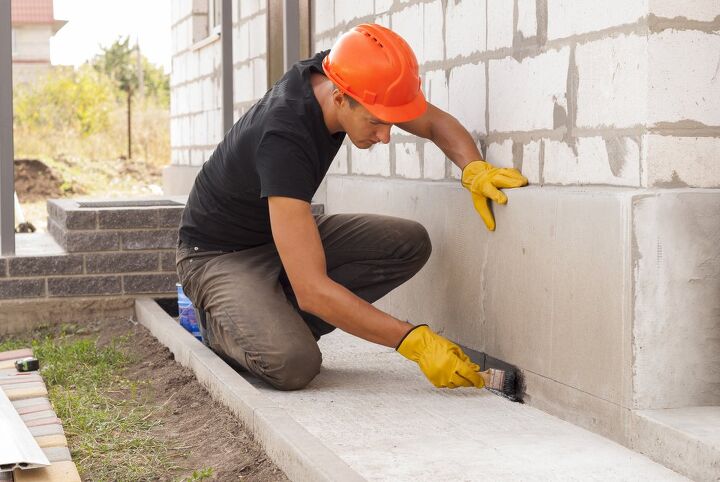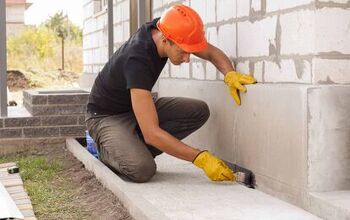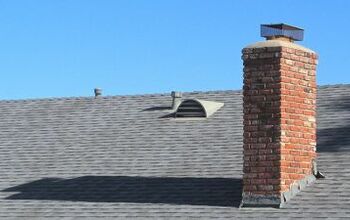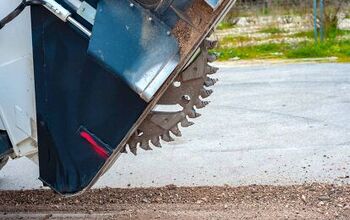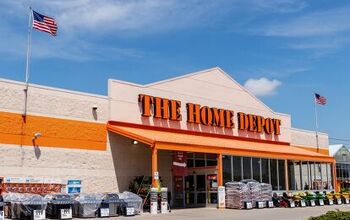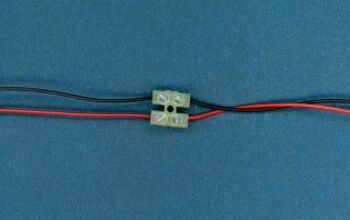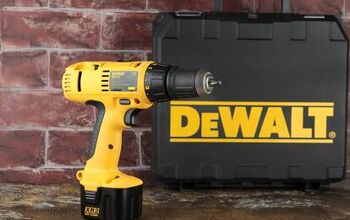How Much Does Foundation Repair Cost?

Stabilizing your home is the main job of your foundation and that’s why maintaining it properly is crucial. Any issues affecting your foundation can quickly affect the rest of your home. Don’t be surprised if certain parts of your home sustain lasting damage due to problems plaguing your foundation.
Prioritize repairing issues impacting your foundation because they can be especially devastating both now and long-term. You can start by identifying the specific issue that is currently causing damage to your home’s foundation. Once you know the nature of the problem you’re dealing with, you can push forward with administering the necessary repairs.
Homeowners pay an average of $9,000 for foundation repair. Patching small foundation cracks will cost about $2,200. Reinforcing bowing walls caused by a damaged foundation costs an average of $8,000. Sealing the leaks and waterproofing your foundation will cost you a total of $9,500. Repairing a sinking foundation costs an average of $16,000, or $1,000 to $3,000 per pier unit.
You should never ignore any issues that could compromise the structural integrity of your home’s foundation. The repairs you need may be costly, but paying for them is better than the alternative. Learn more about how much foundation repair costs by continuing with the rest of this article.
Do You Need Concrete Foundation Repair Services?
Get free, zero-commitment quotes from pro contractors near you.

Cost to Inspect Foundation
| Estimate Type | Cost |
| Low-End Estimate | $300 |
| Mid-Range Estimate | $450 |
| High-End Estimate | $600 |
Before you can repair your home’s foundation, you need to know more about the issue affecting it first. That’s why you need to sign up for a professional foundation inspection. On average, foundation inspection costs $450.
You may be wondering why you have to pay for an inspection if you know you’re getting your foundation repaired anyway. Paying for an inspection is not a requirement, but it is highly recommended because it gives you more information to work with.
Following the inspection, you can identify the specific problem and figure out how much it costs. You can now prepare for that better by taking out a loan or withdrawing some money from your savings.
The inspection will tell you just how urgent the issue is. Some issues that can plague a home’s foundation are more serious than others. Thanks to the inspection, you can fix them right away and prevent any further damage.
It’s also best to leave the inspection up to the professionals because they can ascertain the true nature of the problem. They will be able to tell if a particular crack is symptomatic of a larger problem or if it’s an isolated issue.
Look for a structural engineer if you need someone to inspect your foundation. They are the ones who are best suited for that particular job.
Cost to Repair Foundation by Nature of Issue
| Nature of Issue | Cost |
| Bowing Walls | $8,000 |
| Cracks | $2,200 |
| Leaks | $9,500 |
| Sinking | $16,000 |
The issues that can affect your home’s foundation can be quite varied. The very nature of the issue you’re faced with is the main cost factor you need to keep in mind.
We’re talking about a very wide price range here. That’s because homeowners can resolve certain issues via different methods. Some methods are more expensive than others, hence the gap in prices.
Let’s take the time to learn more about the issues that commonly affect home foundations. Read more about them so you can ponder which way of resolving them makes the most sense for your household.
Bowing Walls
First off, we’re going to tackle the issue of bowing walls. If you’re dealing with this problem, you can expect to spend an average of $8,000 on the necessary repairs.
For those who may be unaware, bowing walls are walls that are starting to curve inward. They look like walls that are starting to fold in half as pressure is being applied from both sides.
Too Much Water in the Soil
One potential cause of bowing walls is too much water in the soil. An excessive amount of water in the soil can exert pressure on the walls and cause them to fold inward.
Your basement walls may also be more susceptible to bowing depending on where you live. If you live somewhere cold, your soil could freeze and expand. As the frozen soil expands, it can exert pressure on your basement walls and cause bowing.
Shifting Soil
Constantly shifting soil can also deal damage to your foundation. That damage can manifest itself in the form of bowing basement walls.
So, how do you address bowing walls? If the issue is related to water, then you should patch up those foundation leaks first. Fail to address the leaks and the bowing walls will persist.
As for the walls themselves, you can repair them in one of two ways. The first option involves using wall anchors. Those wall anchors can be gradually tightened. Tightening the anchors will help return the walls to their original form.
Homeowners can also use carbon fiber or steel strips to fix their bowing walls. Those strips will effectively reinforce the walls so they don’t get bent out of shape again.
Sealing Cracks
Next up, let’s talk about repairing the cracks in your home’s foundation. Compared to other repairs you may need to make, you won’t have to spend that much money to address those cracks. Repairing cracks in your home’s foundation costs an average of $2,200.
Cracks in your home’s foundation can be symptomatic of different issues. The first potential explanation for them is not that problematic.
You see, the concrete used for your foundation shrinks as it cures. As the concrete shrinks, cracks may start to form as well. Those cracks may start to run vertically or diagonally on your foundation.
Epoxy Injection
The cracks that come about as a result of the concrete shrinking can be fixed with the help of an epoxy injection. The epoxy injection serves two purposes. The epoxy will stop the cracks from growing wider and it will also keep water out of the small openings.
The other likely explanation for your cracked foundation is the presence of too much water. It could be too much water in the soil or too much water from recent rains. Either way, that excessive amount of water is causing real damage to your foundation.
Cracks caused by water damage will form horizontally. Fix those horizontal cracks on your foundation as soon as possible because they can cause a lot of trouble.
Epoxy injections will again be used to fill in the cracks. That’s because they work just as well for both vertical and horizontal cracks.
Also, you should know that polyurethane injections can also be used instead of epoxy. Don’t be alarmed if the workers repairing your foundation mention using them. They will work just as well as fixing those cracks.
Sealing Leaks
We can now turn our attention to the matter of leaking foundations. You will likely have to spend $9,500 to fix those aforementioned leaks.
Once again, the leaks that have sprung in your foundation are probably related to the abundance of moisture in the surrounding soil. All that moisture in the soil will cause it to move around. If the soil continually pushes against your foundation, cracks and leaks will eventually form.
Repairing the leaks in your foundation is a multi-stage process. It often starts with the workers digging up the perimeter of your foundation. They are doing that so they have greater access to the leaks.
With the soil dug up, the workers can now patch up the leaks. This time around, they will use a special compound to close those openings.
Waterproofing
Sealing the existing leaks is just half of the battle. If the workers stopped there, you would just run into more leaks in the future. That’s why waterproofing measures should also be put in place.
Waterproofing your basement could involve sealing the walls. It could also include the installation of some drains. Those drains are meant to divert water away from your foundation.
The contractor can give you some advice regarding which waterproofing measures are recommended for your property. It’s up to you to decide if you want to pursue the installation of those safety measures.
Sinking Foundation
Last up, we also need to talk about the possibility that your foundation may sink. Sinking is a serious issue and it costs a lot of money to address. Homeowners pay an average of $16,000 to repair a sinking foundation.
You probably won’t be surprised to learn that too much water is again the likely explanation for your foundation issues. The difference this time is that it takes a lot of water to flood your foundation and sink it. Sinking is what happens if you fail to do something about those cracks and leaks we discussed earlier.
Apart from water in your soil, your sinking foundation can also be a byproduct of poor installation. The soil underneath your home should have been compacted before the foundation was laid down.
If the soil was not compacted properly, a portion of your foundation may start to sink. With no level surface supporting the foundation, it’s more likely to sink into the soil.
Methods to Fixing Sinking Foundation
There are two ways to fix a sinking foundation. The first method involves a procedure known as mudjacking.
To perform this procedure, the workers pump some mud under your foundation to level it out. Mudjacking is the more affordable way to fix a sinking foundation and that’s why many homeowners prefer it.
Unfortunately, mudjacking is not a suitable solution in all cases. Severe cases of sinking may have to be remedied through underpinning and the installation of piers.
The piers lift your home off the ground, thus preventing the sinking foundation from causing further damage. The piering and underpinning method is expensive, but it’s a long-lasting solution to many issues that could affect your home’s foundation.
Cost to Repair Garage Foundation
| Estimate Type | Cost |
| Low-End Estimate | $1,000 |
| Mid-Range Estimate | $5,500 |
| High-End Estimate | $10,000 |
The foundation presenting issues may not be the one installed under your home. Instead, the problems may be affecting your garage’s foundation. In that case, you can expect to pay $5,500 for the necessary repairs.
Most of the time, homeowners have to pay less for needed garage foundation repairs. That’s because the garage foundation is often smaller. It’s easier to administer the repairs when you don’t have to work on a large concrete slab.
Repairing a detached garage’s foundation is even easier. Because the garage is detached, the workers have more freedom when the time comes to apply the repairs. They don’t have to worry about disrupting anyone who may be inside.
Issues with a garage’s foundation are often missed because we don’t spend a lot of time in that part of the home. Make a habit out of inspecting your garage regularly so you can spot potential foundation issues.
Cost Factors for Foundation Repair
The specific issue affecting your home and your chosen repair method are the main cost factors in foundation repair. However, they are far from the only factors that matter when it comes to your final bill. Continue reading if you wish to learn more about the other cost factors that you need to consider.
Location of Your Home
You always have to consider the area where you live when you are calculating potential costs for a major home improvement project. The location of your home influences the cost of your project in two specific ways.
The price of the materials that will be needed to repair your foundation can change based on where you live. That’s especially true if the materials need to be delivered from a different state. Certain materials may also cost more depending on where you live.
The location of your home also affects the cost of labor. Workers stationed in areas with a higher cost of living charge more for their services.
Permits
Repairing your foundation is a major project. For that reason, you shouldn’t be surprised that securing a permit for it will be required. The permit required for foundation repair costs $120.
Getting your hands on the permit should not be too difficult. Contractors can help you with that as well if you’re short on time.
Type of Foundation
Another cost factor you need to consider before paying for repairs is the type of foundation you have. Examples of foundations include concrete slabs, stem walls, and the ones made from piers and beams.
Repair costs for pier and beam foundations as well as concrete slab foundations are fairly similar. Stem wall foundations are slightly cheaper to repair relative to the two aforementioned options.
Do You Need Concrete Foundation Repair Services?
Get free, zero-commitment quotes from pro contractors near you.

Related Questions
Are Foundation Repairs Worth It?
It’s difficult to come up with a scenario wherein making foundation repairs is not worth it. You will need to repair your foundation if you intend to stay in your home long-term. The rest of your home will sustain major damage if you don’t make those repairs.Repairing the foundation is still required if you want to sell your home. It will be nearly impossible to attract buyers if you’re trying to sell a home with a damaged foundation. Make those repairs if you want to lure in more potential buyers.
Is Foundation Repair Covered by Homeowners Insurance?
Whether or not foundation repair will be covered by your home insurance will depend on the policy you have. If the issue affecting your home is not covered, then you’ll have to pay out of pocket to address that.
Is It Safe to Live in a House with Foundation Problems?
Short-term, living in a house with minor foundation issues is generally considered safe. Even so, you need to address those foundation issues as soon as possible. Don’t hold off too long on fixing them because they could make your home uninhabitable.

Gary Evans is passionate about home improvement. He loves finding out how to make improvements in the easiest, most practical, and most affordable ways. Upgrading his home kitchen is one of his ongoing hobbies. Gary is also a long-time content creator and enjoys spending his free time tending to his hydroponic vegetable garden.
More by Gary Evans



